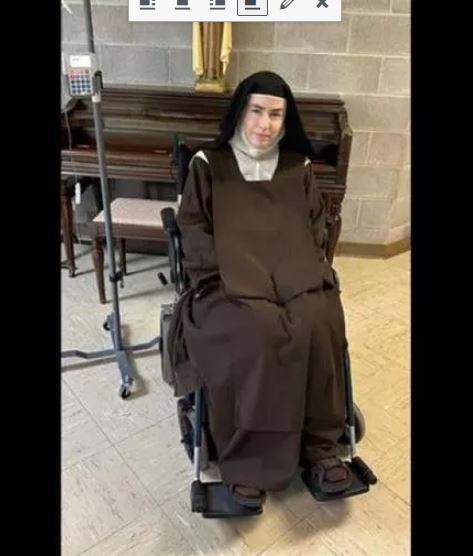Abortion and Catholic Politicians

A World Without Christ Leads to the Atheist Gunman
November 14, 2017
Physician-Assisted Suicide: A New Pascal’s Wager
November 14, 2017
By JP Nunez, Catholic Stand, November 14, AD2017
 Many self-styled pro-choice Catholic politicians today claim to accept the Church’s teaching against abortion. This may seem strange, since the Church clearly teaches that abortion is wrong, but they justify their stance with a clever (if ultimately unsound) argument. They say that they’re personally opposed to the practice, but they don’t want to force their religious beliefs on others. They essentially compare outlawing abortion to forcing everyone to be baptized or go to Mass on Sunday. We would not think to do those things, the argument goes, so neither should we impose on others our religious beliefs regarding abortion.
Many self-styled pro-choice Catholic politicians today claim to accept the Church’s teaching against abortion. This may seem strange, since the Church clearly teaches that abortion is wrong, but they justify their stance with a clever (if ultimately unsound) argument. They say that they’re personally opposed to the practice, but they don’t want to force their religious beliefs on others. They essentially compare outlawing abortion to forcing everyone to be baptized or go to Mass on Sunday. We would not think to do those things, the argument goes, so neither should we impose on others our religious beliefs regarding abortion.
However, I would argue that people who use this argument don’t really know what the Church teaches about abortion. If we look carefully at what the Church actually says about the issue, we can see that there is in fact no room for such a split between our personal and political views on it. While it is true that we should not try to force our religious beliefs on others, our view on abortion is not just a religious belief. Rather, the Church explicitly tells us that her teaching on abortion isn’t just for Catholics. It is for everyone, Catholic and non-Catholic alike, so we cannot relegate it merely to some personal sphere with no implications for society at large.
The Argument for Abortion
To see what I mean, let’s first look at a more sophisticated version of the argument in favor of supporting abortion publicly while opposing it personally. It would go something like this. If we accept the Catholic faith, we do so because we believe it has been revealed to us by God. We believe that he has revealed to us certain truths about himself and about how we are supposed to behave towards him and one another, and the Church’s teaching on abortion is one of these truths. Pope St. John Paul II taught that the Church’s teaching on abortion is “based…upon the written Word of God” and “transmitted by the Church’s Tradition” (Evangelium Vitae 62), a clear indication that it is rooted in revelation.
Granted, this doesn’t mean that we believe that God explicitly singled out abortion and told us that it is wrong. No, it could simply mean that God has told us that it is wrong to kill innocent human beings, and the Church has interpreted this to include the unborn. Either way, the Church’s teaching about abortion is still based on revelation. Now, as the Church also tells us, we cannot force anybody to believe in God’s revelation to humanity (Dignitatis Humane 6, 10-11), so we cannot expect non-Catholics to accept the Church’s teaching on abortion, nor can we force them to abide by it.
More Than Just Revelation
However, the argument I just gave has one fatal flaw: not everything the Church teaches is known by revelation alone. The Church tells us that while some of her teachings, like the Trinity and the Incarnation, can be known only through revelation, some can in fact be known by unaided reason as well. For example, she tells us that the existence of God can be known by reason alone without the help of revelation (CCC 36), and, more importantly for us here, she also says that the moral law can be known by unaided reason as well (CCC 1954). This teaching is based on St. Paul’s words about the knowability of God:
“For what can be known about God is plain to them, because God has shown it to them. Ever since the creation of the world his invisible nature, namely, his eternal power and deity, has been clearly perceived in the things that have been made. So they are without excuse; for although they knew God they did not honor him as God or give thanks to him, but they became futile in their thinking and their senseless minds were darkened. . . . They were filled with all manner of wickedness, evil, covetousness, malice. Full of envy, murder, strife, deceit, malignity, they are gossips, slanderers, haters of God, insolent, haughty, boastful, inventors of evil, disobedient to parents, foolish, faithless, heartless, ruthless. Though they know God’s decree that those who do such things deserve to die, they not only do them but approve those who practice them.” (Romans 1:19-21, 29-32)
Just like the Catechism, St. Paul too teaches that we can know the existence of God and the precepts of the moral law through reason alone. He says that people ought to know them, so their disobedience and sinfulness are their own fault.
Difficult Truths
Now, this brings up a question. If we don’t need revelation to know these things, why does the Church teach them? Put another way, why doesn’t the Church limit herself to teaching about things that we can know only through revelation? The answer is because human reason isn’t perfect. While we can theoretically know the existence of God and the truths of the moral law by reason alone, it is very difficult to do so without the help of revelation. As the Catechism tells us:
“This is why man stands in need of being enlightened by God’s revelation, not only about those things that exceed his understanding, but also ‘about those religious and moral truths which of themselves are not beyond the grasp of human reason, so that even in the present condition of the human race, they can be known by all men with ease, with firm certainty and with no admixture of error.’” (CCC 38)
More specifically, as St. Paul says in the passage quoted above, humanity is caught in a vicious circle of sinfulness and ignorance. Sin darkens our minds and makes us ignorant of God and his law, and this ignorance of God leads us to greater sinfulness, which then darkens our minds further and leads to even greater ignorance, and around and around it goes. As a result, even though the existence of God and the precepts of the moral law can theoretically be known by unaided reason, it is very difficult for us to do so in our current state, and it is even more difficult to do so perfectly. To remedy this, God has chosen to reveal these truths to us, so with the aid of that revelation, we can live lives of love and righteousness.
Where Abortion Falls
This then raises a further question: can the Church’s teaching on abortion be known by unaided reason, or do we need revelation? According to the Church herself, it’s the latter. She says that it “is gravely contrary to the moral law” (CCC 2271), and her teaching about it is based not just on the Word of God but also on “the Law of God which is written in every human heart, knowable by reason itself, and proclaimed by the Church” (Evangelium Vitae 62).
In other words, the Church’s teaching on abortion is one of those truths that we can know by reason alone, apart from revelation. This is why there are many people who argue against it on strictly philosophical and scientific grounds, without appealing to God, the Church, or anything related to religion. For example, one of my old college professors, Patrick Lee, has a website with several articles of his that do just that. Similarly, Robert George, a professor at Princeton University, has written a book (Embryo: A Defense of Human Life, coauthored with Christopher Tollefsen) that does this as well. Finally, there are organizations like Secular Pro-Life that are dedicated to fighting abortion entirely on secular, non-religious grounds.
As a result, we don’t have to accept the Church’s teaching on faith alone. Rather, we can also learn the philosophical and scientific reasoning behind it as well, and the Church encourages us to do so. We do not all have to study these subjects and become experts on them, but the arguments are out there, and we would do well to familiarize ourselves with them.
Back to Politics
So where does this leave the argument that we shouldn’t impose our religious beliefs about abortion on others? It totally demolishes it. The Church’s teaching about abortion isn’t just a religious belief; it is very different from our beliefs about baptism and the Mass. Those are purely religious beliefs that unaided reason could never figure out, so we should never try to impose them on anyone else or try to force others into acting in accordance with them. However, the Church is very clear that our belief about abortion can be known apart from revelation; it is part of the natural moral law to which everyone, Catholic and non-Catholic alike, has access.
As a result, it’s perfectly legitimate for the state to prohibit abortion, just like it is perfectly legitimate for the state to prohibit people from murdering (people outside the womb) and stealing. The Church has very clear teachings about those acts as well, but nobody would say that laws against them impose our religious beliefs on others. No, those actions are forbidden by the moral law, which can be known apart from revelation, so it is perfectly legitimate for the state to enact laws prohibiting them. Similarly, the immorality of abortion can also be known by unaided reason without any recourse to God or religion, so the state has every right to prohibit it as well.
Simply put, Catholic politicians who claim to personally accept the Church’s teaching about abortion but publicly support the legality of the practice simply don’t know what the Church really says about it. They do not understand that the Church actually says that its teaching on the matter is a truth of reason as well as revelation, something that all people can (and should) accept. Consequently, our Catholic faith leaves no room for this kind of political doublethink. There is no way for a Catholic legitimately to hold contradictory public and personal beliefs about abortion without going against what the Church actually says on the subject. If we really accept her teaching on this important matter, we will oppose abortion both personally and publicly, no ifs, ands, or buts.
______________________________
About the Author: JP Nunez
JP Nunez has been a theology nerd since high school. He has master’s degrees in both theology and philosophy (with a concentration in bioethics) from Franciscan University of Steubenville, and he spent three years in Catholic University of America’s doctoral program in biblical studies before realizing that academia isn’t where he wants to be. During his time in Steubenville, he worked for two years as an intern at the St. Paul Center for Biblical Theology, where his responsibilities included answering theological questions and helping to format and edit their Journey Through Scripture Bible studies. He blogs at JP Nunez: Understanding the Faith Through Scripture.




